Good Wishes for a New Year Filled with Exciting Population Research Results!
|
It’s been a busy year and much to appreciate. CSDE graduate students continue to excel with recent graduates landing great jobs as population researchers in academia, think tanks, government agencies, companies, and the non-profit or philanthropic sector. Their research is finding its way into influential places, including informing policy, improving evidence bases for policy making, and changing how we think about population dynamics. Similar impacts are made by CSDE scholars across the UW's three campuses - books, articles, innovative data products, and advances in methodologies are garnering important attention among scholars and the public. We document many of these outcomes in CSDE's e-news (so don’t forget to share your news).
To celebrate the decades of contributions by the CSDE community, please save the date (May 16, 2025) for our anniversary celebration during CSDE's “75 and Counting: Making Census of the World!” Yes, indeed, CSDE was founded more than 75 years ago! To learn more, contact csde@uw.edu. More information to come in January 2025. And, we look forward to seeing you there!
Many best wishes to our entire community for a new year filled with important population research results!
~ Sara Curran, CSDE Director
(read more)
|
 |
|
|
Autumn Quarter CSDE Lightning Talks
|
CSDE’s seminar series closed out the autumn quarter with an excellent poster session, featuring CSDE Trainees and students Isaac Sederbaum (Doctoral Candidate, Evans School of Public Policy), Mingze Li (Doctoral Student, Sociology), Sarah Kilpatrick (MS Student, Data Science) and Man-Lin Chen (Doctoral Student, Sociology).
Isaac Sederbaum took home the prize with a poster and presentation entitled “'I Deadnamed Myself Until my Documents Matched': Trans People and the Psychological Costs of Citizen-State Interactions in the US." CSDE extends a special thank you to Desiree Salais, Jessica Godwin, Jill Fulmore and Maddie Farris for organizing the event and the CSDE Faculty Affiliate Feedback Panel: Audrey Dorelien, Rawan Arar, and Joan Casey. CSDE wishes everyone a happy holiday and appreciates all who helped make fall’s seminar series a success!
(read more) |
 |
Chi Quoted in Recent Article About the Continued Importance of Water Fluoridation
|
CSDE Affiliate Donald Chi was featured in a recent story from Side Effects and WFYI Public Media about the recent news surrounding incoming Department of Health and Human Services (HHS) Director Robert F. Kennedy Jr.’s skepticism of water fluoridation. In the article, Dr. Chi explains that oral health in the U.S. generally declined during the COVID-19 pandemic and argues that water fluoridation is still important – especially in areas where rates of tooth decay are particularly high.
(read more) |
 |
Dwyer-Lindgren, Mokdad and Colleagues Author “Ten Americas” Study in the Lancet
|
In 2006, an “Eight Americas” study partitioned the U.S. into eight demographic groups and identified dramatic life expectancy gaps between the groups. In a recent publication in The Lancet, CSDE Affiliates Laura Dwyer-Lindgren (Institute for Health Metrics and Evaluation), Ali Mokdad (Health Metrics Sciences, Epidemiology) and co-authors present an updated analysis of data from 2000 – 2021 and identify ten distinct groups during that time period. The study, entitled “Ten Americas: a systematic analysis of life expectancy disparities in the USA,” confirms the persistence of dramatic inequalities and suggests opportunities for targeted action in response. Read the full article here.
(read more) |
 |
CSDE Biomarker Working Group Hosted Guest Speaker Thom McDade
|
|
CSDE Recommends Winter Quarter Graduate Demography Courses
|
CSDE Trainees are encouraged to select one of these courses as a Demographic Methods Certificate elective. CSDE Affiliates, please share these courses with your students:
CSDE Core Courses Winter 2025
SOC/CSSS/CSDE 533: Research Methods in Demography (3 or 5 credits)
- Instructor: Jessica Godwin
- Note: 5 credit version (B sections) includes an R lab and is required for completion of the Graduate Certificate in Demographic Methods
Recommended Electives Winter 2025
STAT/CSSS/SOC 534: Statistical Methods for Spatial Data (3 credits)
- Instructor: Jon Wakefield
EPI 548/HSERV 548: Research Methods for Social and Contextual Determinants of Health (3 credits)
G H/HSERV 544: Maternal and Child Health in Low and Middle Income Countries (3 credits)
EPI 521/HSERV 542: Epidemiology of Maternal and Child Health Problems (3 credits)
- Instructor: Daniel Enquobahrie
BIOST/EPI 537: Survival Data Analysis in Epidemiology (4 credits)
EPI 550/G H 552: Understanding Pandemics: When People, Pathogens, and a Changing Planet Collide (3 credits)
- Instructor: Julianne Meisner
If you have any questions regarding these courses or the CSDE Certificate Program, please reach out to CSDE Certificate Program Advisor, Jill Fulmore (fulmore@uw.edu). You can view the CSDE Certificate Program details here.
(read more) |
 |
*New* IPUMS USA announces new data release
|
IPUMS USA has released the 2023 ACS and PRCS 1-year PUMS data, including updates to race variables that reflect changes first implemented in the 2020 questionnaire. This data also incorporates the 2022 industry codes in the IND and INDNAICS variables. Learn more here.
(read more) |
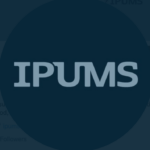 |
*New* Call for Applications: UW Azure Generative AI for Science Hub
|
The University of Washington eScience Institute is partnering with Microsoft on the new UW Azure GenAI for Science Hub. Through this Hub we are offering cloud computing credits to UW researchers (faculty, postdocs, research staff) from all 3 UW campuses for projects where utilization of generative AI is central to accomplishing their research goals. Grants of up to $15,000 in Azure credits will enable access to AI Studio, Azure OpenAI Services, and GPUs as well as other standard Azure services. Proposals will be accepted on a rolling basis, with priority given to applications submitted by Friday, January 10th. Learn more here.
(read more) |
 |
UW Libraries Resources for Open Source Publication Costs
|
Did you know that UW Libraries has resources available to support open source publication costs in some journals? Learn more about how to take advantage of these opportunities here.
(read more) |
 |
IPUMS Announces New Data on Anti-CRT Measures
|
IPUMS Contextual Determinants of Health (CDOH) released a new dataset created in collaboration with the CRT Forward Tracking Project at UCLA. The CRT Forward Tracking Project provides detailed information about anti-critical race theory (CRT) measures introduced by various government entities. The dataset describes the type of conduct that is restricted or required, the regulated institutions, specifics of the targeted conduct, and enforcement mechanisms that regulate the conduct. IPUMS CDOH incorporates geographic identifiers for the government entities, allowing researchers to link data from sources like the ACS or National Center for Education Statistics' Common Core of Data. Learn more here.
(read more) |
 |
*New* Call for Research Proposals: Understanding the School Food Workforce Subgrants (due 2/14/25)
|
The U.S. Department of Agriculture Food and Nutrition Service, the University of Wisconsin-Madison, Food Insight Group, and Chef Ann Foundation recently announced a Request for Research Proposals entitled “Understanding the School Food Workforce Subgrants.” The group is looking for research projects that will increase understanding of the current state of the K-12 school food workforce in the United States and/or explore strategies to create a stable and respected workforce that can provide healthy meals to students while supporting resilient local and regional food systems. You are invited to join an informational webinar on December 18 (register here) and access the full RFP here.
(read more) |
 |
Sign up to join the Early Career listserv!
|
We invite early career faculty affiliates to join our new mailing list, csde_earlycareer. Among other things, this is the way to find out info about our quarterly Early Career Affiliate happy hours, and you won't want to miss those! These will be a great way to meet up with other junior scholars in a fun and casual atmosphere over snacks and drinks. Who counts as early career, you ask? Typically we mean folks who are pre-promotion (i.e. assistant professor or equivalent), but we're not strict! Join the list here (Please note - this is for faculty only - we are strict about that. Sorry, all others!)
(read more) |
 |
IES / NCER Research Training Grant Competition (due 3/7/25)
Institute of Translational Health Sciences (ITHS) Team Science Workshop 2025 (register by 1/7/25)
|
The Team Science Workshop is a free, interactive training intended for interdisciplinary research teams working on a translational research project/study or within a research center. Teams will learn the theory and practice of team science. This workshop will be offered virtually during four 2-hour sessions on Wednesdays and Thursdays over a 2-week period. Each day, we will focus the first 90 minutes on team science education and training, and the final 30 minutes on team working sessions.
(read more) |
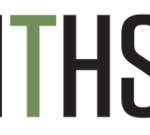 |
Max Planck Institute for Demographic Research (MPIDR) Population and Social Data Science Summer Incubator Program (1/8/25)
|
The Max Planck Institute for Demographic Research (MPIDR) is inviting applications from qualified and highly-motivated students for a Summer Research Visit. The goal of the Population and Social Data Science Summer Incubator Program is to enable discovery by bringing together data scientists and population scientists to work on focused, intensive and collaborative projects of broad societal relevance.
For a period of 3 months (June 2nd – August 22nd, 2025) participating students will work in small teams, with support from experienced mentors, towards a common research goal. For the summer of 2025, the focus of the program will be on three main research areas:
1) “Climate Change and Mobility” mentored by Risto Conte Keivabu, Ebru Sanlitürk, and Monica Alexander (University of Toronto);
2) “Machine Learning for Life Course Trajectories” mentored by Linda Vecgaile, Bruno Arpino (University of Padova) and Emilio Zagheni;
3) “Mortality in War Settings” mentored by Yvette Young, Diego Alburez-Gutierrez, Enrique Acosta (Centre d'Estudis Demogràfics -CED) and Irena Chen.
Learn more about this opportunity here. Applications are due by January 8th, 2025.
(read more) |
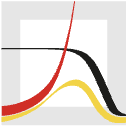 |
Population Health Initiative Accepting Tier 2 Pilot Grant Applications (LOI due 1/13/25)
|
The Population Health Initiative recently announced the availability of Tier 2 Pilot Grants. The purpose of this tier of grants is to support faculty and PI-eligible staff to develop preliminary data or proof-of-concept needed to pursue follow-on funding to scale one’s efforts. Awards of up to $65,000 each will be available to interdisciplinary research teams. Letters of intent are due January 13, 2025. Learn more about the opportunity and previously funded projects here.
(read more) |
 |
Office of Global Affairs Accepting Applications for the 2025 Global Innovation Fund (due 1/31/25)
|
Applications for the Office of Global Affairs’ Global Innovation Fund are now open. This grant opportunity is intended to develop cross-college and cross-continent research collaborations, with award opportunities from $3,000 to $20,000 available to support fellowships, research projects, study abroad/away and teaching. Learn more about the various opportunities here. Applications are due January 31, 2025.
(read more) |
 |
Call for Abstracts: Data-Intensive Research Conference (due 1/31/25)
|
Abstract submissions are now open for the 2025 Data-Intensive Research Conference. The 2025 conference theme is Understanding Health and Population Dynamics through Big Microdata. We seek submissions that use full count census data to examine health and population dynamics. We are particularly interested in projects that link persons, families, or communities across censuses or link full count data to other sources, including the creation of place-based measures or person-level linkages to external data.
(read more) |
 |
Call for Abstracts: Workshop on the Integration Paradox (due 2/1/2025)
|
Empirical evidence shows that many migrants who are seemingly well “integrated” actually do not feel at home, report more discrimination and experience a weaker sense of belonging to their residence country than seemingly less integrated migrants. The literature on the integration paradox (IP) has expanded significantly in recent years, but it still falls short on longitudinal perspectives and empirical evidence on the underlying mechanisms and scope of countries and migrant groups studied. The International Union for the Scientific Study of Population (IUSSP) recently announced a research workshop at Utrecht University (Netherlands) on this subject.
(read more) |
 |
Call for Papers: Gender & Society Special Issue – Feminist Metascience, Feminist Open Science? Pain Points and Possibilities (Due 2/1/25)
|
Call for papers: Gender & Society Special Issue — Feminist Metascience, Feminist Open Science? Pain Points and Possibilities, due by Feb 1st, 2025.
Guest Editors: Christin L. Munsch (University of Connecticut) and Daisy Verduzco Reyes (UC-Merced)
This special issue explores the relationship between feminism, metascience, and open science, seemingly disparate areas of inquiry of contemporary significance. This special issue will be a forum for feminist scholars to explore these relationships.
Topics to be considered include, but are not limited to: the impact of open science on gender justice; bias and discrimination in research participation, academia, research, and publishing; experiences of marginalized groups in social science; the role of metascience in shaping inclusive research practices; feminist epistemologies including Black feminisms, Latinx feminisms, and feminisms of the global South; feminist methodology; gender and academic fraud and/or error; gender and participation in open science practices like data-sharing; reproducibility projects as gendered; research transparency as gendered; feminist research ethics; gendered public engagement; peer review; the evaluation of scientific impact; and publishing and publication bias. We welcome papers that employ quantitative and qualitative methods and perspectives, draw attention to culturally and politically distinctive struggles; incorporate power structures such as colonialisms, nationalisms, religion, ethnicity, and globalization in their analyses; or otherwise challenge hegemonic discourses and epistemologies.
(read more) |
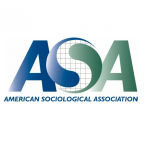 |
NSF Call for Proposals: Human-Environment and Geographical Sciences Program (Proposal Target Date 2/3/25)
|
The NSF’s Human-Environment and Geographical Sciences Program reissued its call for proposals. The call invites senior research proposals, early career development proposals, research coordination network proposals, conference and research community development activities, research experiences for undergraduates and graduates, and transdisciplinary research in environmental social science. The objective of the Human-Environment and Geographical Sciences program is to support basic scientific research about the nature, causes, consequences, or evolution of the spatial dimensions of human behaviors, activities, and dynamics as well as their interactions with environmental and social processes across a range of scales. Contemporary geographical research encompasses diverse research traditions and methodologies. Recognizing the breadth of the field's contributions to science, the HEGS program welcomes proposals for empirically grounded, theoretically engaged, methodologically rigorous, and generalizable research that advances geographical and geospatial sciences. Visit this link to learn more.
(read more) |
 |
Updating the Definition of Sexual and Gender Minority Populations in NIH-Supported Research
Statistics indicate that as of 2024, nearly eight percent of the U.S. population identifies as LGBT, with much of this growth attributed to increases in LGBT identification among younger generations. In recent years, policies and laws have been enacted in support of LGBTQI+ communities and their well-being. For example, the 21st Century Cures Act included provisions for the NIH Director to encourage efforts to improve research related to the health of sexual and gender minority (SGM) populations, including to increase participation of SGM populations in NIH-supported clinical research and to facilitate the development of methods for conducting SGM research. SGM people were designated as a population with health disparities for NIH research in 2016 by the Director of the National Institute on Minority Health and Health Disparities in consultation with the Director of the Agency for Healthcare Research and Quality. The NIH SGM health research portfolio has steadily grown and diversified since 2015.
(read more) |
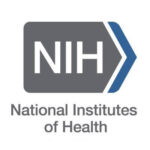 |
CSDE Population Research Planning Grants (PRPGs) (Rolling deadline)
|
Population Research Planning Grants (PRPGs) are designed to provide in-kind support and/or funds of up to $25k* to support a wide array of activity types throughout the development of a research project. As part of our mission to complement rather than duplicate other campus opportunities such as the Population Health Initiative seed grants, we will consider funding things activities such as the use of CSDE services beyond the standard allotments for affiliates.
(read more) |
 |
CSDE Matching Support to Supplement On-campus Funding (Rolling deadline)
|
CSDE Matching Support includes in-kind or monetary support to accompany a submission to other on-campus funding mechanism, such as PHI, EarthLab, or Urban@UW. All projects must have a CSDE affiliate who is UW faculty and is listed as a PI or co-PI, with any number of other collaborators. Note that we require (PRPGs) or strongly suggest (matching funds) contacting either Development Core Director (Steven Goodreau) or CSDE Director (Sara Curran) to discuss possibilities for your specific proposal before submission.
(read more) |
 |
IPUMS Health Surveys Data Update
|
The IPUMS Medical Expenditure Panel Survey (MEPS) recently announced a new data release. IPUMS now includes 2022 data released by the Agency for Healthcare Research and Quality (AHRQ) earlier this year. This initial release updates over 1,100 variables from the Full Year Consolidated, Condition, Event, Prescribed Medicine, Appendix to the Event, and Pooled Variance files and adds variables about Long COVID. Learn more here.
(read more) |
 |
NSF: Proposals Impacting Tribal Nation Resources & Interests
|
As of 5/20/2024, NSF proposals that may impact the resources or interests of a federally recognized Tribal Nation will not be awarded by NSF without prior written approval from the official(s) designated by the relevant Tribal Nation(s).
Proposers must:
- Seek guidance from the potentially impacted Tribal Nation on activities that require review and prior approval from that Tribal Nation’s authorized designee.
- Submit a written request to the relevant Tribal Nation (based on their guidance), for approval to carry out the proposed activity that requires their review and approval.
- Complete the checkbox for “Potential Impacts on Tribal Nations” on the Cover Sheet. Note, lead organizations are responsible for this on collaborative proposals & proposals with subawards considered a single unified project.
- Upload one of the following into "Other supplementary documents" of Research.gov:
- a copy of the written request to the relevant Tribal Nation to carry out any proposed activity/activities that may require prior approval from them
- written confirmation from the Tribal Nation(s) that review and approval is not required
- a copy of relevant Tribal Nation approval
(read more) |
 |
|
|

